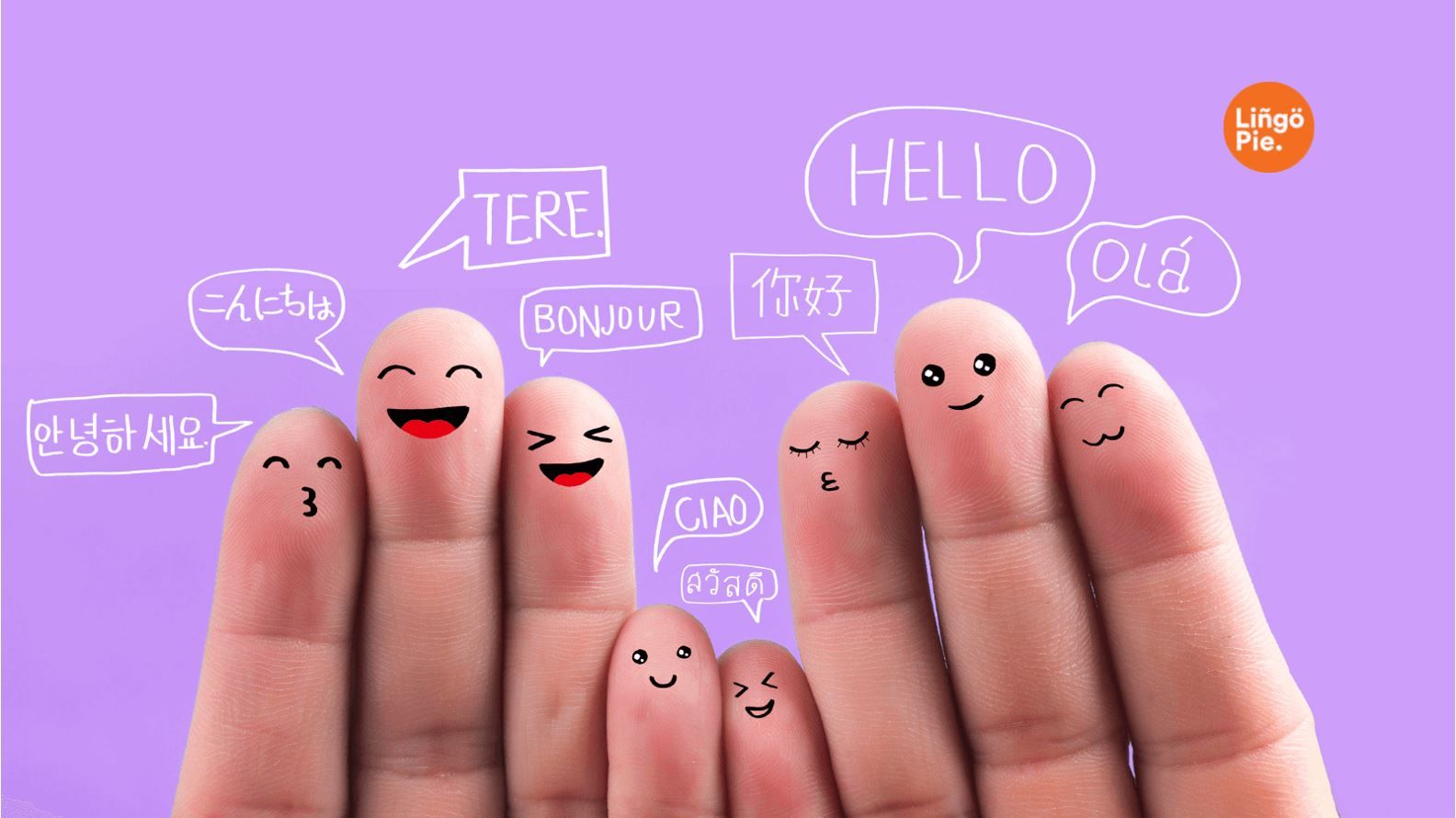Bilingualism, the ability to speak more than one language fluently, has become increasingly relevant in today's interconnected world. Being bilingual offers a wealth of advantages in both education and career, shaping individuals' cognitive abilities, language skills, and cross-cultural communication.
In this article, we will delve into the power of bilingualism and explore its profound impact on personal and professional growth. Additionally, we will discuss effective strategies for language learning, providing insights into how individuals can best acquire a second language.
By the end of this quick guide, you will understand the transformative potential of bilingualism and how it can shape your educational journey and career prospects.

Table of Contents
- What Does it Mean to Be Bilingual?
- The Benefits of Being Bilingual
- Improved Cognitive Abilities
- Increased Cross-Cultural Communication
- Educational and Professional Opportunities Overseas
- How to Learn a Second Language
- FAQs About Bilingualism and its Advantages
What Does it Mean to Be Bilingual?

Bilingualism refers to the ability of an individual to speak and understand two or more languages fluently. It is the state of being proficient in more than one language, allowing for effective communication and comprehension in multiple linguistic contexts.
Bilingual individuals, such as these celebrities, possess the skills to switch between languages effortlessly, demonstrating fluency and proficiency in both their native language and the additional language(s) they have acquired.
Bilingualism encompasses high levels of proficiency in reading, writing, listening, and speaking multiple languages. Now, let's take a look at the benefits of knowing a second language (or a third, fourth, or fifth language!).
Read Also:


The Benefits of Being Bilingual
The ability to speak a second language fluently provides a wealth of advantages to children and adults alike. From educational benefits such as improved cognitive abilities to career advantages like being able to communicate respectfully with people from other cultures, bilingual people are blessed with significant life advantages.
Let's explore the various benefits of being able to speak multiple languages.
Improved Cognitive Abilities

Bilingualism offers a wide array of cognitive benefits, profoundly impacting your cognitive abilities. These advantages can open doors in the worlds of work and education.
Bilingualism has been found to enhance memory and attention span. The constant mental exercise of switching between languages strengthens the brain's cognitive processes, resulting in improved memory formation and retrieval. Moreover, bilingual individuals exhibit enhanced attention control, allowing them to effectively filter out irrelevant information and maintain focus on the task at hand.
As you can imagine, this will set a bilingual individual ahead of a monolingual peer within an educational or professional setting. Being bilingual also fosters superior problem-solving skills by encouraging flexible thinking and the ability to consider multiple perspectives.
Bilingual individuals often exhibit cognitive flexibility that enables them to switch between different language systems effortlessly. This cognitive flexibility extends beyond language processing and influences other cognitive domains, such as attentional control and mental flexibility.
Finally, when you can speak a second, third, or fourth language, you develop excellent language skills. You become much more adept in the grammar of your native language and you foster fantastic communication skills. This is a benefit both in the world of work and education, as you will become more linguistically advanced and able to communicate very efficiently.
Increased Cross-Cultural Communication

Another of the remarkable benefits of bilingualism is its profound influence on cross-cultural communication. By speaking more than one language, individuals gain a unique advantage in navigating diverse cultural landscapes and bridging communication gaps.
Speaking multiple languages facilitates cross-cultural communication by enabling individuals to understand and connect with people from different backgrounds.
Bilingual individuals possess a deeper appreciation and knowledge of other cultures, as language is intricately intertwined with cultural nuances, idioms, and customs. This understanding allows them to navigate social interactions with ease and sensitivity, fostering meaningful connections with people from diverse backgrounds.
Moreover, bilingualism holds immense importance in linguistically diverse societies and communities. In such settings, whether it be a school, office, or local community, being able to communicate in multiple languages fosters inclusivity and breaks down language barriers.
Beyond facilitating communication, bilingualism plays a pivotal role in fostering empathy, tolerance, and global citizenship. By actively engaging with different languages and cultures, bilingual individuals develop a broader worldview and gain a deeper appreciation for the richness of human diversity.
Educational and Professional Opportunities Overseas

That all being said, becoming bilingual offers significant advantages for both work and educational opportunities overseas.
In the professional realm, bilingual individuals have a competitive edge in the global job market. They can effectively communicate with clients, colleagues, and partners from different linguistic and cultural backgrounds, facilitating successful international collaborations.
Bilingualism opens doors to job opportunities in various industries such as international business, tourism, diplomacy, and translation services.
Additionally, when it comes to pursuing educational opportunities abroad, bilingualism enhances the overall experience. Bilingual students can navigate academic environments with ease, interact with professors and fellow students, and fully immerse themselves in the local culture. Moreover, they have access to a wealth of learning resources in multiple languages.
This linguistic advantage broadens their educational horizons and fosters a deeper understanding of different cultures.
How to Learn a Second Language
When it comes to learning a second language, incorporating effective strategies can greatly enhance the learning process. Firstly, setting clear goals and creating a study routine helps maintain motivation and track progress.
Moreover, immersion through language exposure is crucial, so watching authentic content like TV shows and movies with subtitles can be helpful. Lingopie, a language learning platform, offers an immersive experience by providing access to a vast library of foreign-language TV series with interactive subtitles.
Additionally, practicing regularly, engaging in conversations with native speakers, and embracing cultural immersion are all beneficial. Look online for a language exchange partner who wants to practice speaking your native language and in turn, you can have conversations in their native language, your target language.
You can also benefit from engaging with music, podcasts, the news, books, and social media content in your target language.
Remember, consistency and perseverance are key to mastering a new language.
FAQs About Bilingualism and its Advantages
Let's look at some of the most frequently asked questions about the benefits of speaking a second language.
What are the advantages and disadvantages of speaking more than one language?
The advantages of speaking more than one language include enhanced cognitive abilities, better cross-cultural communication, and increased job and educational opportunities overseas. Bilingual people also experience less cognitive decline as they age. It is never too late to learn a second language.
The disadvantages of speaking two languages may include occasional language confusion or code-switching. When you speak more than one language, you can mix them up from time to time. This, however, is a small disadvantage when weighed against to advantages.
Do bilingual children have an advantage?
Bilingual children often have advantages in school such as better cognitive skills, improved problem-solving abilities, and greater cultural awareness compared to monolingual children. Enjoying a bilingual education opens doors to completing higher education overseas and the ability to make friends from all around the world. Children who speak two languages tend to perform better academically than children who speak only one language.
What are the career advantages of being bilingual?
Being bilingual offers career advantages such as increased employability, access to global job markets, and the ability to communicate with a wider range of clients and colleagues. When you speak a second language, you are more appealing to an employer than a monoclonal competitor as you can foster connections with other global companies and use your diverse linguistic skills to propel the company forward on a global scale.
What is the educational advantage of speaking a foreign language?
Speaking a foreign language provides advantages in education such as a more open-minded approach to learning. Bilingual children and young adults often have a greater appreciation for the world's diverse cultures. It also opens up opportunities for language immersion and studying abroad. Bilingual children tend to have greater cognitive function and a stronger desire to see the world. So, people who learn a new language are likely to be more curious, academically successful, and ambitious.

Summing Up: The Power of Bilingualism: Advantages in Education and Career
The power of bilingualism is undeniable, offering a multitude of advantages in both education and career. As you have seen, bilingualism positively impacts cognitive abilities, language skills, and cross-cultural communication.
By speaking more than one language, individuals gain a competitive edge in a globalized job market, opening doors to diverse career opportunities. Moreover, bilingualism fosters empathy, tolerance, and global citizenship, contributing to a more interconnected and harmonious world.
Embracing best practices for language learning, such as setting goals, immersing oneself in authentic content, and utilizing language learning platforms like Lingopie, can further enhance the language acquisition process.
By learning a new language, individuals can unlock a world of opportunities and reap the countless rewards that come with speaking multiple languages. Your journey toward second language acquisition begins today.







![Language Difficulty Ranking For English Speakers [2025]](/blog/content/images/size/w300/2025/05/Language-Difficulty-Ranking----For-English-Speakers.png)
![Language Learning with Netflix [2025 Guide]](/blog/content/images/size/w300/2023/05/Netflix-AD.jpg)

